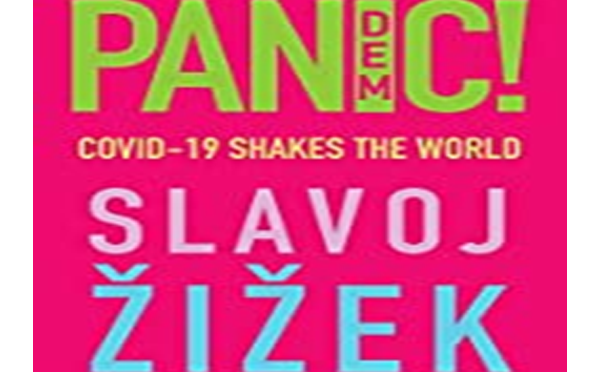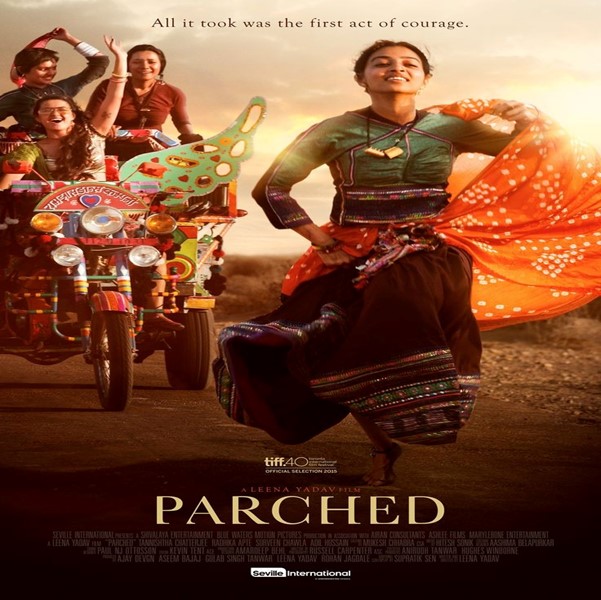The Cry of Conscience: Slavoj Zizek’s Latest Book on Covid-19
Posted on : June 19, 2020Author : AGA Admin

When Mary Magdalene tried to touch Jesus Christ after his resurrection, Jesus said, “do not touch me, touch and deal with other people in the spirit of love.” Today when people are almost forced not to touch others and not to be touched, when millions of people are living their ‘quarantined’ lives with utmost anxiety and fear, a new interpretation of the philosophy of touch becomes necessary. Slavoj Zizek, one of the most important philosophers of our time, did it in his latest book Pandemic: Covid-19 Shakes the World (published in 2020 by Or Books). Starting from this, however, Zizek developed his insightful ideas over various aspects of the ongoing pandemic in this ten-chaptered small book.
Zizek, in his philosophical quest, is always ‘dangerous’ (Adam Kirsch) and path-breaking. Therefore, after getting over the immediate shock of the threat he started to find out the ‘wrong’ with our system. Philosophers, scientists and many others had been repeatedly raising alarms about the vulnerability of our civilization which has been experiencing an abnormal growth since its beginning. Therefore, for Zizek this crisis is not totally unexpected. But he wondered why the system was so unprepared to cope up with this crisis and that is why he started to find out the reasons for its failure. This book is basically a bunch of his reflections over this issue, where he not only talked about the crisis and its reasons but also said a lot on how to overcome it (or to say it philosophically, how to save civilization).
When the virus erupted out in Hubei Province in China, the authority first responded to this issue with a mode of coercion. It tried to suppress the data and therefore, arrested the doctor who first discovered the virus. But this attempt did not work and subsequently the whole world came under the threat of it. If China valued free speech, according to Zizek, the crisis could be prevented. Furthermore, unlike Mao’s idea of trusting the people, “the (present) government runs out on the premise that one should NOT trust the people”. And due to this mutual distrust rumours and panics are spreading on a massive scale, which the authority can prevent with nothing but coercive methods. Historian Yuval Noah Harari in his recent article also argued that this mutual distrust between people and the government causes a very unhealthy environment in which the state machinery wins a free cheque to do anything with its citizens.
Apart from its medical and economic disasters, Zizek thinks, the pandemic gave birth to three other ideological viruses: fake news, paranoiac conspiracy theories and explosions of racism. When a deep cooperation among states was needed, he sees that states are basically blaming each other for this crisis. Russia and Turkey (in Zizek’s words ‘Putgan’ virus) are trying hard to demolish the strength of the united Europe for their sole selfish purposes, US media – at least for some days – termed the coronavirus as ‘Chinese virus’. All these are nothing but obstacles to global solidarity.
As a staunch critic of capitalism, Zizek argues that it is the inability of capitalism that accelerated the growth of this crisis. In its initial days, most of the Western leaders denied or refused to believe the strength of the virus and didn’t take serious measures and thought that their countries would overcome the crisis quickly. Even after the virus hit their countries, many leaders are still arguing that economic functions should not be stopped. Zizek harshly criticizes this ‘capitalist animism’ that pays more importance to the market and finance than the health of the infected people. Furthermore, he also finds that the power elites have already made the efficient alternative system for their own and left the mass almost totally unsafe and completely vulnerable to any of the crises like pandemics, climate disasters, hunger, so on and so forth. If, Zizek argues, people start asking questions to the top leaders of their countries and the capitalists about their mischiefs, it would certainly be a positive side effect of this pandemic.
How to overcome this disaster? Zizek argues that capitalism has failed to solve the problem. Therefore, most of the states have started to take some socialist/communist measures. For example, the US has pledged a huge amount of dollars to give to its citizens as universal basic incomes, the UK government has taken over the railways partially in their hands, many governments are directly intervening in the health sector. All these statist measures have a connotation of erstwhile socialism. That is why, he prophesies, “In a crisis we all are socialist.” However, these above measures are not enough. “Universal threat gives birth to a global solidarity, our petty differences become insignificant.” Therefore, we all should walk together to find a solution. And here, Zizek puts the most controversial argument of this book. He thinks with this global solidarity a communism will certainly arise and this gives birth to a controversy and many eminent scholars started to criticize and even mock him. But what does Zizek actually mean by communism? He has a three-fold idea of communism: first, collective, coordinated and comprehensive approach that engages the entire machinery of the government; second, local mobilization of people outside state control; and third, strong and efficient international coordination and collaboration. He thinks the pandemic has hit the globe so hard that it has no alternative except to choose communism. But if we look at the history of capitalism, we will find that every time when capitalism experienced any crisis, it didn’t hesitate to appropriate techniques from other ideas. In their thoughts, J.S. Mill and T.H. Green presented the capitalist notions with a socialist sugar-coat in the name of positive/reformist liberalism. Capitalism in England at that time was in immense turbulence due to repeated socialist strikes and movements. The list of this capitalist appropriation is literally endless. Therefore, who can say, it is not a capitalist appropriation of communism not only to get rid of this crisis but also to re-emerge in a more vigorous form? Here, Zizek chooses to remain silent.
This text is not only an analytical description of the crisis and the search for a way out, but it also serves a deep philosophical responsibility. Since its beginning, the modern western epistemology constantly propagated anthropocentric, individualistic values and gave birth to an egoist ‘man’ who remains indifferent to ‘his’ society, feels no responsibility to it. And the tragedy is that “we need a catastrophe to be able to rethink the very basic features of the society in which we live.” Zizek himself for long had cautioned Western epistemology about this serious drawback and when the storm has finally arrived, he does not try to escape from it. Rather he agrees to face it and determines to make that ‘man’ remember ‘his’ true place in the environment that sustains ‘him’:
“The struggle against coronavirus can only be fought together with the struggle against ideological mystification, and as a part of a general ecological struggle… It is not enough to put together some kind of global healthcare for humans, nature in its entirety has to be included… We have constantly to bear in mind the global picture of the world we live in, with all the paradoxes this implies.”
In the introduction to this book, Zizek once asks, “Will we learn anything from it (the pandemic)?” To answer this, he puts forth ideas from Hegel. According to Hegel, the only thing we can learn from history is that we learn nothing from history. Therefore, Zizek doubts that humanity might enter into a new phase of history after passing through this catastrophic pandemic without actually learning anything from it.
Sourav Chakraborty
Intern, AGA





This article is very informatic as well as it draws our attention towards important points like ‘distrust between people and government’. Communism and it’s significance in recent time is very well described and it provide a new understanding..lastly I would like to give my opinion that this pandemic has taught us many things so we should learn to be in the originality, be according to nature and not to violate natural laws..Then only we can together make a civilization that will be strong, natural and huminastic.
Sourav Chakraborty your are crisp…